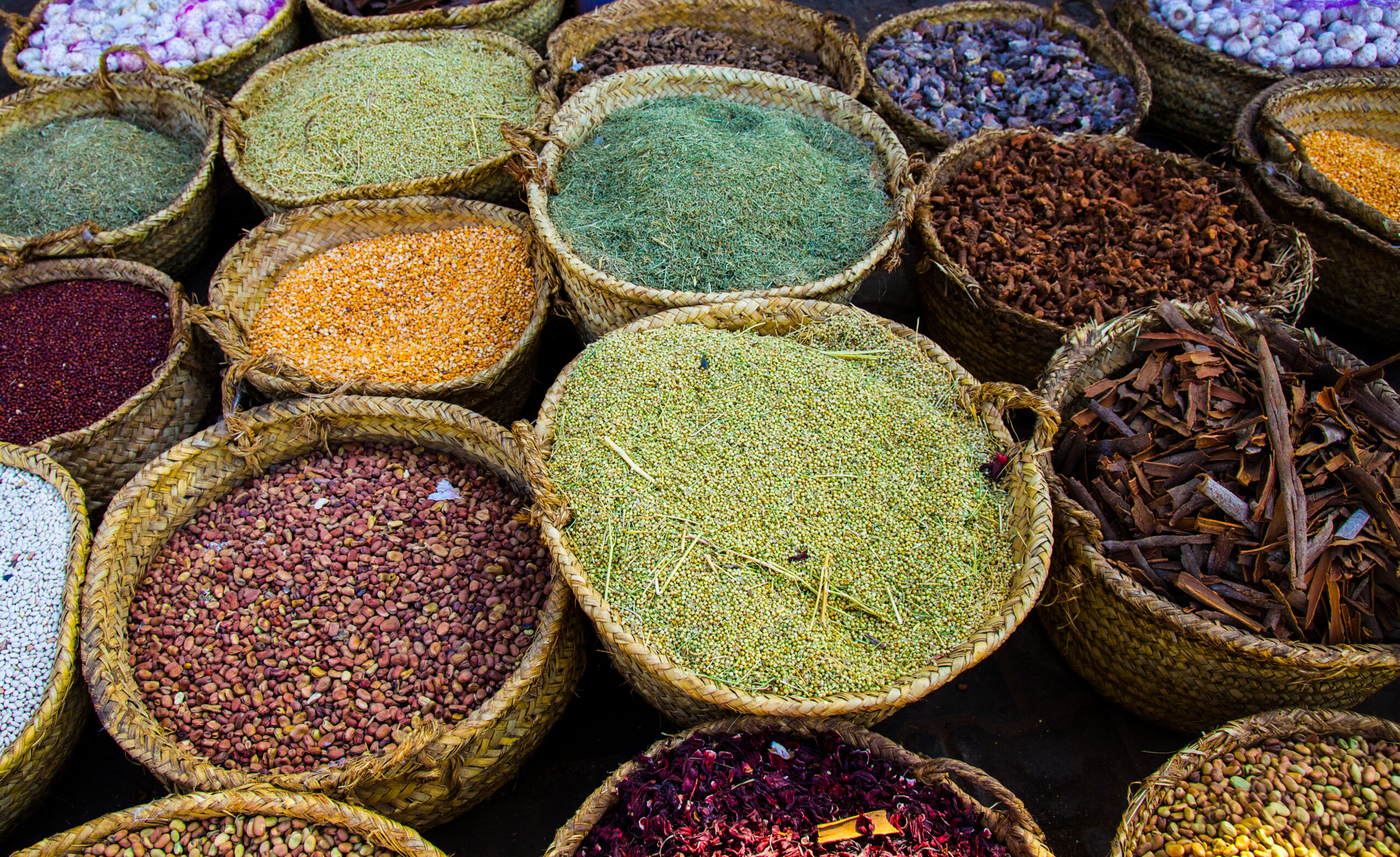The 15 most popular Indian dishes to try besides curry
October 4, 2025

Just like its culture, Sudan’s cuisine has been shaped by a number of outside influences across the centuries, with echoes of West African, Arabic and European cookery strongly evident. Traditional Sudanese food tends to be relatively simple to prepare and many recipes call for just one pan, but the complexity of flavors comes from deft use of a variety of spices and herbs.
Dining in Sudan is a communal affair, and commonly a pretty large group of extended family will gather at every meal time to enjoy eating together from the Sudanese seniyya – a large round metal platter that holds all the communal dishes – and exchanging the news of the day. Sitting down to dine together is also symbolic of unity and peace in Sudan, where the expression ‘we ate a meal together’ means ‘all is well between us.’

The best-loved celebratory dish in Sudan is a rich meat stew known as mullah, which is flavored with plenty of onion and garlic, peanut butter, and tomato. Some recipes call for okra or yoghurt, as well. Once cooked, the mullah stew is often blended to give a smooth consistency, and it is scooped up with pieces of kisra, a typical Sudanese flatbread made with a batter of flour and ghee, which is spread thinly on a flat griddle rather like a crepe. These two dishes are often served together as the centerpiece of the Sudanese seniyya.
In Sudan, breakfast is often quite hearty with a few different dishes to choose from. Recipes tend to show some similarities with traditional Middle Eastern breakfast foods such as simple omelets, perhaps cooked with some chopped vegetables, or ful medames, the classic thick broad bean stew which in Sudan is often served with tomato, onion, crumbled feta, or hard boiled eggs.

These fava or chickpea fritters are the same as falafel but in Sudan they are known as tamayya. Once the chickpeas or fava beans have been rehydrated and ground to a crumbly paste, the cook adds cumin, coriander, garlic, salt and lemon juice, rolls the paste into small balls or patties, and fries them until golden. These are often served in a sandwich or with dips in Sudan.
As well as dried fruits such as dates and apricots, the Sudanese enjoy delicate fried pastries shaped into diamonds and triangles using a plain dough, deep-fried and sprinkled with sugar – much like a doughnut. Basboosa is another popular treat, a sweet cake made with semolina. Mukhbaza is a sweet dessert of breadcrumbs blended with mashed banana and local honey.
Read more: Sudan’s cultural highlights

Typical drinks in Sudan include a diluted tamarind-flavored drink and red hibiscus tea, as well as coffee or tea made Sudanese with the addition of cinnamon and sugar for a warming spiced cup. Tap water is not usually safe to drink and alcohol is forbidden. Locally-brewed spirits and beers do exist, but the punishment for being caught drinking them is harsh, so best to avoid alcohol altogether during your time in Sudan.
Other popular options you might like to try as part of Sudan’s traditional foods include goraasa be dama, a flavorsome beef stew made with fresh tomato and green pepper, and given a depth of flavor by the addition of cardamom and cinnamon; kawari, a soup made by boiling the hooves of cattle or sheep and combining these with a selection of vegetables; and fassikh, a mixture of fish, spices and tomatoes cooked together to give the fish a lovely spiced flavor.

Among the best-loved and most commonly eaten ingredients in Sudan are peanuts, rice, fava beans, maize or sorghum porridge, okra, meat, and sesame. A range of spices are used, but the most popular is probably cumin. Dill is a common garnish, as is coriander.
Read more: Layers of heritage: our guide to North Africa for foodies
Sudan is a truly off-the-beaten-track destination with very few tourists, so it can be a real journey of discovery – pyramids, ancient kingdoms, a buzzing capital and an untouched Red Sea coast are just a few of the reasons to visit. Traditional Sudanese food offers layers of enticing flavors, which reflect the multicultural influences that Sudan has absorbed over the years.
We aren’t currently offering trips to Sudan, but should these resume in future, our trusted local experts will help you plan your itinerary according to your preferences – whether you’d like to focus on food, history or culture, they can make it happen.
Explore all featured destinations
Join our mailing list for travel inspiration, trip recommendations, and insights from our local experts.